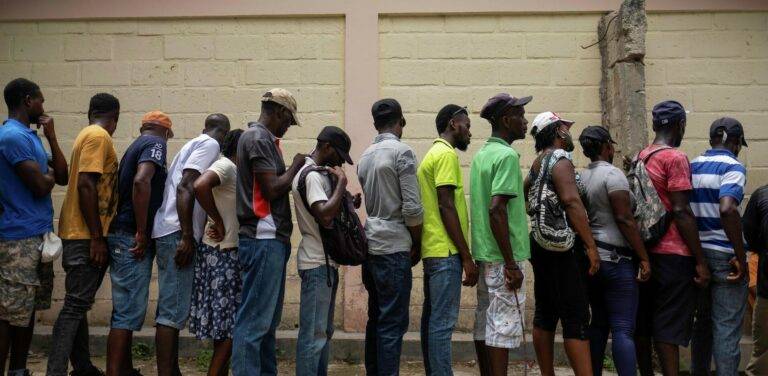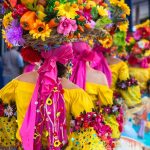148 killed in shootings in Haiti

Haitian police have increased patrolling.
The war between gangs in the metropolitan area of Port-au-Prince has forced thousands of Haitians to flee to safer areas. Still, their arrival is generating suspicion in the places of reception, where some are rejected for fear that there are bandits among the displaced.
According to the latest United Nations report released last week, the clashes between the 400 Mawozo and Chen Mechan gangs, which broke out on April 24, have forced at least 9,000 people to flee their homes in recent weeks.
According to the UN, at least 75 civilians have died in the shootings, but the National Network for the Defense of Human Rights in Haiti (Rnddh), an NGO, affirmed that it had counted 148 murders.
The outbreak of violence has led hundreds of people to seek refuge in the streets of Port-au-Prince, where on Tuesday, many received medical attention from doctors from the Ministry of Health. But it has also departed from the capital to rural areas, where the lack of infrastructure and essential services is more pressing, making it more challenging to assist the displaced. In addition, however, it gives the impression that they are “traumatized” people who have lost everything.
The war between gangs in the metropolitan area of Port-au-Prince has forced thousands of Haitians to flee to safer areas. Still, their arrival is generating suspicion in the places of reception, where some are rejected for fear that there are bandits among the displaced.
According to the latest balance sheet from the United Nations, the clashes between the 400 Mawozo and Chen Mechan gangs, which broke out on April 24, have forced at least 9,000 people to leave their homes in recent weeks week.
According to the UN, at least 75 civilians have died in the shootings, but the National Network for the Defense of Human Rights in Haiti (Rnddh), an NGO, said Tuesday that it had counted 148 murders.
NO FACILITIES FOR THE DISPLACED
The outbreak of violence has led hundreds of people to seek refuge in the streets of Port-au-Prince, where on Tuesday, many received medical attention from doctors from the Ministry of Health.

But it has also departed from the capital to rural areas, where the lack of infrastructure and essential services is more pressing, making it more challenging to assist the displaced. For example, Abel Descolines, a former deputy for Mirebalais, a commune 50 kilometers north of the capital, explained to Efe that in his region, “there are no facilities” to receive people who “spontaneously move” while local authorities, “surprised by their arrival They have no means to respond.
In the last two weeks, the displaced “are arriving by the dozens and hundreds” and settled in the public square and the courtyard of the Mirebalais University Hospital.
















